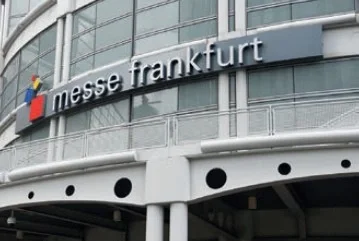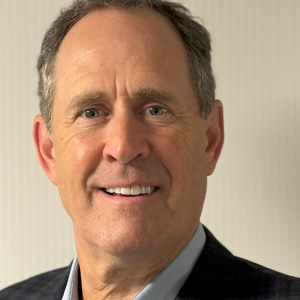
INTERNATIONAL
After eight long years, an influx of industry professionals from all over the world will pour through the doors into Hall 8 at Messe Frankfurt. A wave of anticipation is swelling about the developments to be encountered at Texcare 2024 over 6-9 November.
This year the focus is on AI, automation, digitalisation, reducing labour and energy costs and sustainability across all textile care disciplines in products and services. A full programmes of seminars will also help to push the message home that it is time to step up and embrace a new way of working – if businesses want to succeed in a changing world then they really must change too.
Energy
Commercial laundries make up an energy-intensive business sector with energy accounting for around 15% of total costs and with process heat making up the lion’s share of that figure. Against a backdrop of continuing high energy costs and the challenge of global warming, energy-saving measures and the move away from fossil fuels are of increasing importance for laundries. Hence, all machine and equipment manufacturers are working on the development of concepts that optimise the use of resources and reduce carbon dioxide emissions.
Water is key to cutting costs
Recycling process water is nothing new in the laundry business. However, concepts for recycling pressing water, filtered rinsing and process water and the use of cooling water from the drycleaning machine are constantly being improved, which further reduces the amount of fresh water used.
Reducing energy consumption
Manufacturers of laundry and drycleaning machines, as well as finishing appliances, focus on technology with an optimum efficiency classification: such machines ensure the best possible water extraction and low residual moisture in the laundry so it can be dried quickly and efficiently. Plant manufacturers use new materials, e.g. ceramics and carbon steel, to reduce ironer gas consumption. They also utilise heat-pump technology and generate hot water by means of solar energy. Modern machines are also equipped with special coatings that stop dry, energy-absorbing fluff from adhering to the various surfaces. New technologies improve evaporation performance or improve solvent distillation by preventing boil-over, measuring turbidity or filtration.
Increasingly, the energy contained in vapour is also being harnessed: technologies such as low-pressure vapour recovery systems ‘recycle’ energy from steam to generate process heat.
The system as a whole
Reducing the resources consumed by a textile care business cannot be achieved by implementing isolated measures, but only as part of the overall system in which all processes are intertwined: waiting times at machines, idle times and poor occupancy rates result in unnecessary energy losses. In an energy-optimised laundry, however, every item is in the right place at the right time.
Additionally, management information systems make it possible to precisely analyse energy consumption in all parts of the laundry and provide a solid basis for modifying processes or making investment decisions.
Detergents and processes
The detergent industry also uses processes and products to promote the optimal utilisation of resources in laundries. Low-temperature disinfection processes, which achieve a listing with the Robert Koch Institute (RKI) and the Association for Applied Hygiene (VAH) at 40°C, can significantly reduce the cost of process heat. In the meantime, however, a new benchmark has been established at 50°C for disinfection washing.
Events at Texcare International
In addition to the exhibitors’ highlights, the specialist supporting programme where the top themes of automation, energy and resources, circularity and textile hygiene will also be examined in detail.
n The Texcare Forum in the Galleria A09 will contribute to the transfer of knowledge between manufacturers, users and experts on all four days of the fair. Messe Frankfurt is working closely with its partners, the German Textile Cleaning Association (DTV) and VDMA Textile Care, Fabric and Leather Technologies, as well as other international associations, to develop the content of the conference.
n Visitors can attend seminars on automation for laundries and drycleaners hosted by VDMA and EFIT respectively. Hohenstein Laboratires will host a seminar on laundry hygie certification schemes while VDMA also hosts a presentation on attaining sustainaibility through innovation. ETSA will present a papaer on the circukar economy focusing on rtextile recycling while DTV presents on new business models in the circular economy.
n Texcare International will be offering Guided Tours for the first time. Participants will be introduced to a selection of impressive innovations on the trade fair tours curated and led by experts. In addition to new products from well-known major exhibitors, the tours will also focus on progressive solutions from smaller companies. The Guided Tours will take place on all four days of the fair and start at 11.00 a.m. each day. They are free of charge for holders of a valid Texcare ticket. You can register during opening hours directly on site at the counter in the Galeria.
If you haven’t already registered to Texcare 2024, use this link
https://texcare.messefrankfurt.com/frankfurt/en.html#registration
There are other useful links from that page with handy tips on how to make the most of your visit including ‘How to get there’ instructions and where to stay in Frankfurt. There is even information on local campsites for those who want to bring their own home with them. (There is room for motorhomes in Messe Frankfurt’s visitor car parks.). You can also find tips and links for your evening entertainment in Frankfurt.






